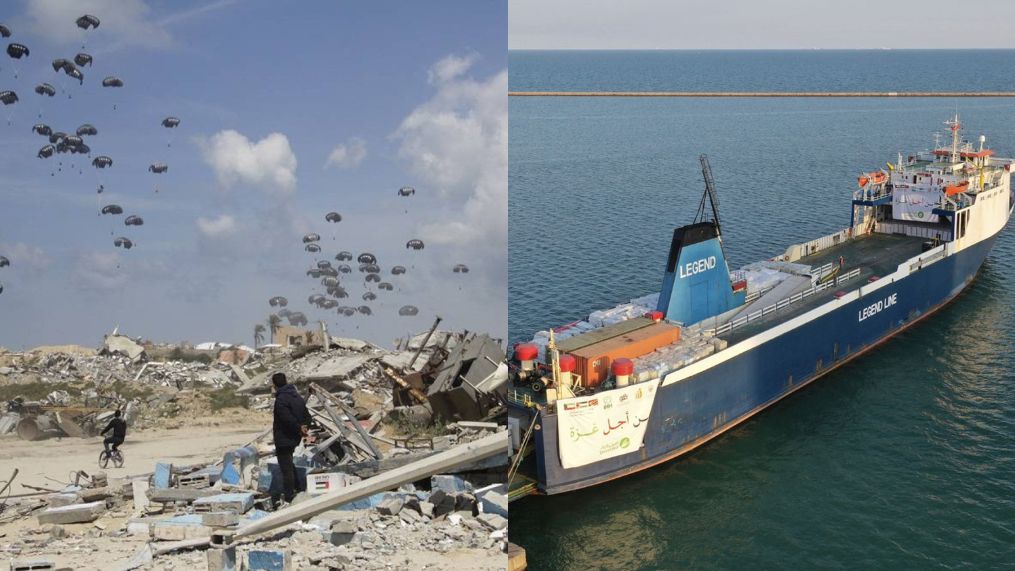In the ongoing crisis in Gaza, where land routes are blocked and sea access is restricted, Air Vice-Marshal Peter Squires highlighted the indispensable role of airdrops in delivering vital aid to the Palestinian population.
Speaking from Cyprus before a military flight over Gaza, Squires emphasized the significance of the 11th Royal Air Force airdrop, which added 110 metric tons of aid to the total relief effort.
Coordinated by a coalition led by Jordan, Western and Arab air forces have been conducting air drops in northern Gaza, focusing on areas with the greatest need and where the risk of famine is most acute.
Squires acknowledged the logistical complexity of these operations but stressed the importance of reaching vulnerable populations with life-saving supplies.
Responding to criticism from aid agencies regarding the impact of airdrops, Squires defended the initiative, asserting that every aid delivery, no matter how small, holds potentially life-saving value for the Palestinians facing dire circumstances.

Despite challenges such as parachute failures leading to accidental deaths, meticulous surveillance and planning aim to ensure aid packages land safely for distribution.
With Israel’s massive assault on Gaza resulting in significant casualties and widespread destruction, the need for humanitarian assistance is urgent.
Squires highlighted ongoing efforts to expedite the operation of a maritime corridor inspired by Cyprus, which could soon facilitate the delivery of aid directly to Gaza’s shores.
This additional route, alongside air drops and limited sea access, underscores the multifaceted approach needed to address the crisis and alleviate the suffering of Gaza’s residents.
As the conflict persists and the humanitarian situation worsens, the commitment to delivering aid remains unwavering, with efforts focused on maximizing assistance through multiple channels despite the challenges faced on the ground.





